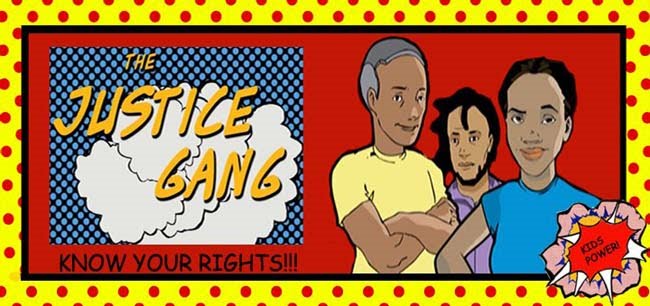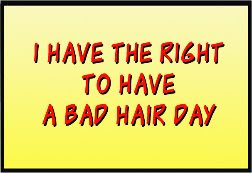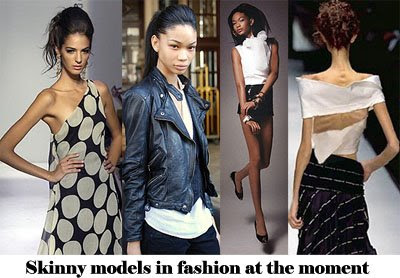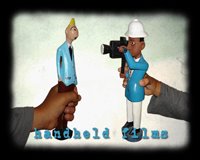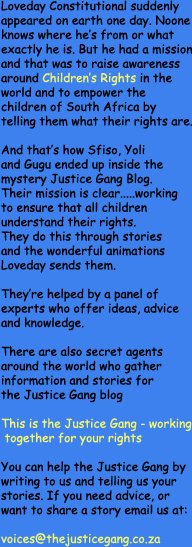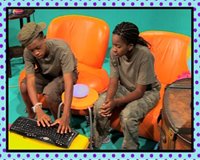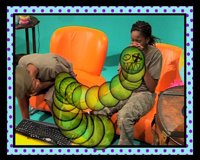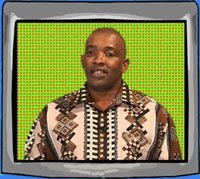Last night at home we had a power failure – no electricity! It’s really quite annoying when that happens. My mom explained to me that Eskom, the company that makes electricity for all the homes in the country, sometimes has to cut power to houses so it can save electricity. The amount of coal they have is very limited, so they have to save electricity whenever they can. Eskom cuts power to different places at different times so they don’t have to cut it to the whole country at the same time. This is called load shedding. This got me thinking that we can help the situation by trying to save electricity in every way we can. This falls under kids rights and responsibilities. I Have the Responsibility to Save Natural Resources.
Gugu and I did some research on the topic and this is what we discovered:
Alternative energy sources are sources of energy other than the regular ones like coal, oil and gas. Coal, oil and gas are known as fossil fuels, formed from plants and animals that lived up to 300 million years ago. They are burned to give humans the energy they need. The problem with relying on fossil fuels for all our energy is that they are a finite resource, which means they will someday run out. Another problem is that when you burn fossil fuels you produce a huge amount of carbon dioxide.
 You might ask what’s wrong with carbon dioxide since this is a gas we all produce every time we breathe out. The answer lies in how much carbon dioxide is being produced. Too much carbon dioxide in the atmosphere is very harmful to the environment. After the rays from the sun hit the earth they should bounce back towards the sun. The problem is that emissions from cars and power stations, contain too much carbon dioxide and this is preventing the suns rays from bouncing back towards the sun. The heat from the sun is trapped in the atmosphere and the earth is getting warmer than it should be. Eventually this warmth could build up until the whole earth begins to dry up. Ponds and streams might disappear and clean water could get even more scarce.
You might ask what’s wrong with carbon dioxide since this is a gas we all produce every time we breathe out. The answer lies in how much carbon dioxide is being produced. Too much carbon dioxide in the atmosphere is very harmful to the environment. After the rays from the sun hit the earth they should bounce back towards the sun. The problem is that emissions from cars and power stations, contain too much carbon dioxide and this is preventing the suns rays from bouncing back towards the sun. The heat from the sun is trapped in the atmosphere and the earth is getting warmer than it should be. Eventually this warmth could build up until the whole earth begins to dry up. Ponds and streams might disappear and clean water could get even more scarce. To let the heat out, we need to cut down on burning coal, oil and gas in cars and power plants. That means using less energy to travel places, to heat and light our buildings and to power factories. It also means finding alternative sources of energy such as wind energy, solar energy and hydro-electric power. These sources of energy are kinder to the environment because they do not produce carbon dioxide.
To let the heat out, we need to cut down on burning coal, oil and gas in cars and power plants. That means using less energy to travel places, to heat and light our buildings and to power factories. It also means finding alternative sources of energy such as wind energy, solar energy and hydro-electric power. These sources of energy are kinder to the environment because they do not produce carbon dioxide. Leaders around the world have signed an agreement called the Kyoto Protocol. Countries now have to make sure they release much less carbon dioxide so the air we breathe can be healthy. People can help by using alternative energy sources, instead of coal, gas and oil. Saving energy at home, school and work is very important. Every bit we save saves our environment.
Leaders around the world have signed an agreement called the Kyoto Protocol. Countries now have to make sure they release much less carbon dioxide so the air we breathe can be healthy. People can help by using alternative energy sources, instead of coal, gas and oil. Saving energy at home, school and work is very important. Every bit we save saves our environment. Here’s another story about a family and how they saved electricity:
Here’s another story about a family and how they saved electricity:Thabo and Palesa’s home had been without electricity for two days. Playing shadow puppets on the first night was fun, but on the second night, after having taken a cold bath, they weren’t in a good mood. Dad called the family together and as they sat by candlelight, he explained that the electricity was cut because he was behind on the payments. With the rising costs of food and petrol, dad said it was hard to keep up with paying all the bills on time. He said if they didn’t do something soon, even the water might get cut!
 Scared of living in a dark, cold house without a drop of water to drink, or cook with or take a bath, Thabo and Palesa went to the library at their school to find information on how they could help save electricity and water around the house. This way, dad would be spending less money. There was so much information, Palesa and Thabo couldn’t wait to get home to show mom and dad. The best part of saving water and electricity was that they would not only be helping their father, they would also be helping to save the earth’s natural resources. This would ensure that there was enough electricity for their family and everyone else, even future generations.
Scared of living in a dark, cold house without a drop of water to drink, or cook with or take a bath, Thabo and Palesa went to the library at their school to find information on how they could help save electricity and water around the house. This way, dad would be spending less money. There was so much information, Palesa and Thabo couldn’t wait to get home to show mom and dad. The best part of saving water and electricity was that they would not only be helping their father, they would also be helping to save the earth’s natural resources. This would ensure that there was enough electricity for their family and everyone else, even future generations. As soon as they got home, Palesa and Thabo showed mom all the information they found. Dad would put off the geyser in the morning when they left for school and work, and he would put it on in the afternoon when they got back. He would also get a geyser blanket to keep the water in the geyser warm. This would help them cut about 21% of their electricity bill. Old light bulbs would be replaced with the new compact ones, which used up to 60% less electricity. Mom would also use a hot box when cooking, which was a special box that helped to cook food without using electricity. Everyone, including mom, had to spend no more than 5 minutes in the shower. Dad said it wouldn’t be a bad idea if mom spent less time using her hairdryer. Mom agreed, as long as dad fixed the taps when they had leaks, so water wouldn’t get wasted. Thabo and Palesa had one more thing for mom to do – defrost the fridge when it got packed with ice. This helped the fridge use less electricity. Mom agreed again, but said Thabo, Palesa and dad could take the food out of the fridge while it defrosted. What will you be doing when we do all this hard work, they asked? I’ll be sitting on the coach saving my energy, mom replied!
As soon as they got home, Palesa and Thabo showed mom all the information they found. Dad would put off the geyser in the morning when they left for school and work, and he would put it on in the afternoon when they got back. He would also get a geyser blanket to keep the water in the geyser warm. This would help them cut about 21% of their electricity bill. Old light bulbs would be replaced with the new compact ones, which used up to 60% less electricity. Mom would also use a hot box when cooking, which was a special box that helped to cook food without using electricity. Everyone, including mom, had to spend no more than 5 minutes in the shower. Dad said it wouldn’t be a bad idea if mom spent less time using her hairdryer. Mom agreed, as long as dad fixed the taps when they had leaks, so water wouldn’t get wasted. Thabo and Palesa had one more thing for mom to do – defrost the fridge when it got packed with ice. This helped the fridge use less electricity. Mom agreed again, but said Thabo, Palesa and dad could take the food out of the fridge while it defrosted. What will you be doing when we do all this hard work, they asked? I’ll be sitting on the coach saving my energy, mom replied!Kids Remember:
You too have the power to do things to save water and electricity in your home and at school. It’s little steps that make a big difference. Save water and electricity today, so there is enough for tomorrow. You have the right to have water and electricity. It’s your responsibility to save them. Remember, save water and electricity – every bit counts!
For some great tips on how to save electricity just click here.
and
to learn how you can save water click here.
Well, that's it for today, don' forget to write us and let The Justice Gang know how you feel about this right.

Bye for now Sfiso
